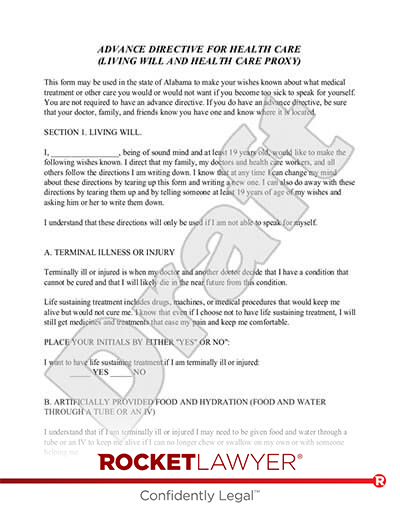When is the right time to update my Living Will?
There is no wrong time to update your Living Will, but the process takes both time and effort. While it is wise to revisit it at certain life milestones, your preferences regarding end-of-life care can change at any time. The decisions in a Living Will are deeply personal and look a bit different from one person to the next.
Major life events commonly lead to updating Living Wills. Examples include marriage, divorce, the birth of a child, being diagnosed with an illness, or experiencing the death of a loved one. If you go through a divorce, for example, your Living Will may require changes if your former spouse is no longer the person you want making major medical decisions for you. Similarly, if the person you name to be your decision maker dies, it may be necessary to name a new person to take over decision-making responsibilities.
Recent changes in health status may also prompt a second look at a previously drafted Living Will and can result in significant changes. For example, a serious medical diagnosis might prompt one to examine their Living Will to confirm what it says about relevant treatment preferences and how to proceed if they become incapacitated.
How do I update my Living Will?
Attention to detail is crucial when updating a Living Will. The process often starts with a thorough review of your current Living Will. It is possible that most of it may remain the same and may not need updating. It is often a good idea to talk to an estate planning lawyer and ask them to review your document. State laws can change and having your estate planning documents reviewed by a lawyer can limit the risk of not following laws that may impact your plans.
If a new Living Will is necessary, the process typically begins with thinking about your preferences for end-of-life care. A new Living Will outlines your current intentions regarding life-sustaining treatments, pain medications, and other considerations in the event of serious and life-threatening illnesses or injuries. Once a new version is drafted and signed, the prior one is revoked. If you want to revoke your current Living Will before you start your new one, you may do so with a Living Will Revocation.
Updating your Living Will also affords the opportunity to designate a new person who is trusted to make healthcare decisions on your behalf, if necessary. Even if end-of-life preferences remain consistent between the new and old Living Wills, a new person, or alternate, may be named in the update. You can also name someone to make these decisions for you in a Medical Power of Attorney. Common candidates include spouses, adult children, and other family members.
What other estate planning documents are important to update when updating my Living Will?
The Living Will is just one of many estate planning documents that call for periodic updates. A Last Will and Testament often is updated at the same time. A Codicil allows for non-complex updates without creating an entirely new Will. Similarly, revocable Living Trusts can be updated while the grantor is still alive, although the process for making these changes can be complicated. Still, for those seeking to avoid probate issues, after setting up a Living Trust, updating it may be necessary.
There are other documents that may be made or updated to reflect end-of-life plans or preferences. A Medical Power of Attorney, for example, may require adjustments alongside the Living Will. The need for one or both varies by state. Many people maintain both a Living Will and a Medical Power of Attorney to maximize flexibility and protection.
Depending on the state, it may be a good idea to update your Advance Directive. Advance Directives often contain much of the same information as a Living Will, however, Living Wills are often more comprehensive. If you have both, updating both can ensure there is no confusion if either are needed.
Am I required to update my Living Will or other estate planning documents when I move to another state?
Moving does not always require updating your Living Will, Advance Directive, or other estate planning documents. That said, there are some moves in which an update might be advisable, even if there are no other life changes present, due to concerns about differing state laws.
While Living Wills often remain relevant even after crossing state lines, this is not always the case. Having your current Living Will and other estate planning documents reviewed by a lawyer after a move to another state can ensure your current estate plan can meet your needs in your new state.
If you have more questions about making or updating your Living Will, or any other estate planning documents, reach out to a Rocket Lawyer network attorney for affordable legal advice.
This article contains general legal information and does not contain legal advice. Rocket Lawyer is not a law firm or a substitute for an attorney or law firm. The law is complex and changes often. For legal advice, please ask a lawyer.
